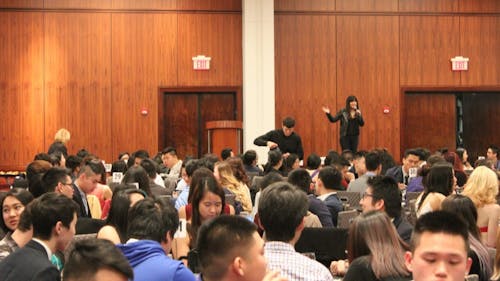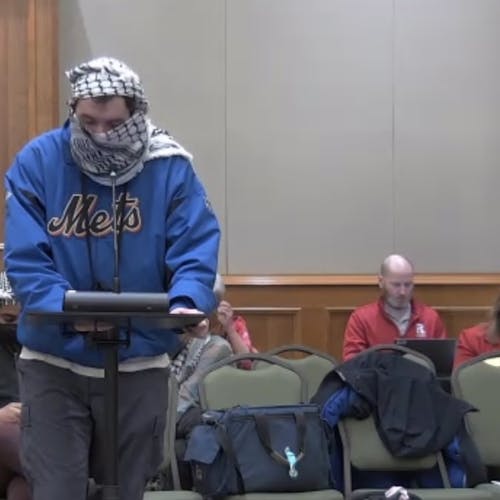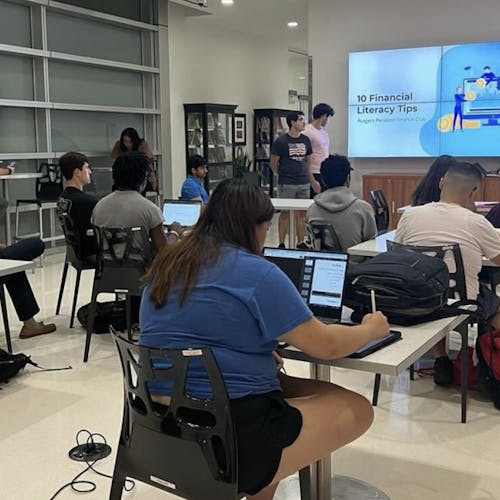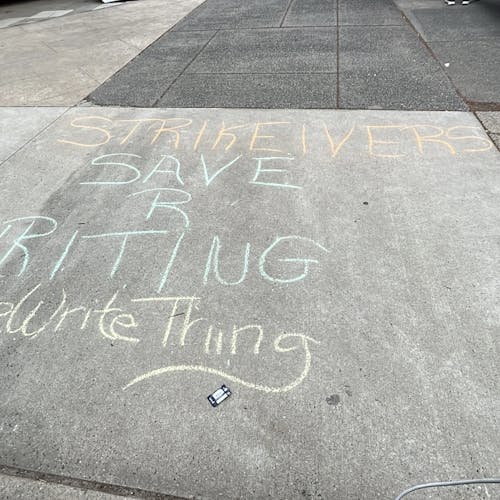East Coast Asian American Student Union hosts conference at Rutgers

More than 900 university students from across the nation gathered this weekend to discuss how they could break through society’s boundaries.
For the first time in seven years, the East Coast Asian American Student Union (ECAASU) held its annual conference at Rutgers University.
The conference’s host of speakers, performers and workshops all centered around this year’s theme --“beyond our boundaries,” said Austin Yip, the head finance officer of ECAASU and one of this year’s conference directors.
“We want to encourage our attendees to go out of their comfort zones and to break the stereotypes that people perceive of Asian-Americans to make a positive change when they go back to their communities,” Yip, a Rutgers Business School senior, said.
The most prominent of these stereotypes is that of the model minority, he said. Asians are often viewed as quiet or meek, in both their private lives and the political sphere. The perception is that Asians do not want to do exciting things or be outgoing.
To combat this stereotype, the conference aimed to engage and empower students interested in issues facing the Asian-American and Pacific Islander community by spreading knowledge about political activism, mental health issues and identity in the modern age.
By functioning as an educational resource, the organization hopes to transfer attendees the skills necessary to combat these issues, Jim Chan, executive director of ECAASU and a Harvard University senior, said.
“One of our biggest issues, is that we’re being ignored, and sometimes, a lot of people say ‘you’re technically a person of color,’ but at the same time people kind of see us as people of privilege,” Yip said.
By making their voices louder and involving themselves in the political process, Asian-Americans and Pacific Islanders can tackle these injustices and force change where it is needed, he said.
Asians are generally seen hard working people who perform well at work and in their studies. Despite their apparent success, they are still treated as exotic others, he said.
“We’re not treated as Americans. A lot of the questions Asian-Americans face are ‘where are you from,’ are you really American,” he said. “They treat us differently. They see us as not American, and we want to change that perception, that’s what we’re trying to fight against.”
Similarly, perceptions of the Asian-American community can be distorted in a more basic way, Yip said.
Within the Asian-American community are a number of very diverse ethnic groups, many of which are ignored when the community is discussed at large, he said.
“When a lot of people think Asian, they think East Asia --Chinese, Japanese, Korean -- but our conference is not just focused on them. We also want to focus on Southeast Asians, South Asians,” he said. “That’s really important to us -- especially here at Rutgers University, where that population is really large.”
Cooperation between Asians and other ethnic groups is also important, Chan said.
“People may tend to stick to their own cultural group because they are more familiar with it, but at any chance to diversify, to interact with other social groups, ECAASU is very happy to push ... for solidarity with other minority groups, push forth understanding of different racial, ethnic backgrounds and understand other perspectives,” he said.
The diverse perspective gained by an expanded understanding of others would impact students greatly, he said.
Because of the cultural and societal stigmas surrounding mental health, many in the Asian-American community have issues dealing with these issues in a healthy manner, he said.
“In Chinese, the word for mental illness (shen jing bing) has the same meaning as violent psychosis,” Chan, a Chinese-American, said. “This cultural foundation really underlies the mental health issue, which deeply affects Asian-Americans on campuses.”
In addition to the numerous workshops aimed at teaching students important mental health skills and dispelling the myths about mental disorders (clinical please), ECAASU has held mental health summits to provide expert attention and guidance to afflicted students.
“The vision for the advocacy team this year is to be a foundation, a home base, for all these issues we talk about on campus,” Chan said. “At the heart of everything we are very much a grassroots organization focused on advocacy and activism representing college students interested in Asian American and Pacific Islander issues.”
____
Nikita Biryukov is a School of Arts and Sciences junior majoring in journalism and media studies. He is an associate news editor for The Daily Targum. Follow him on Twitter @nikitabiryukov_ for more.



